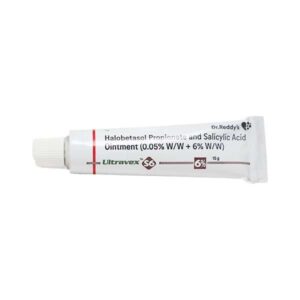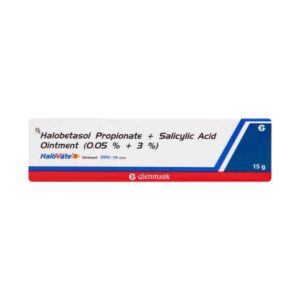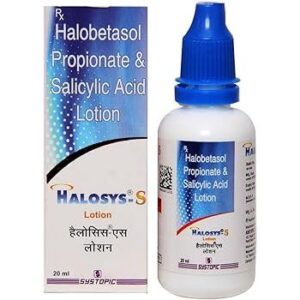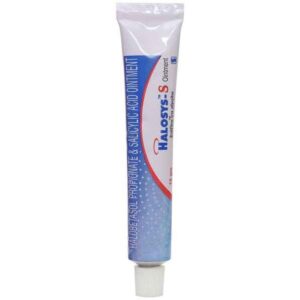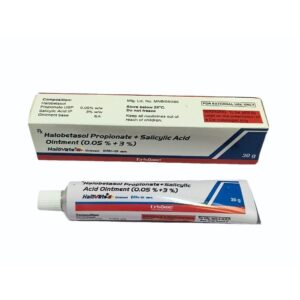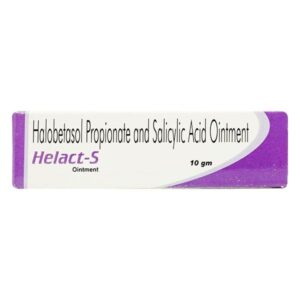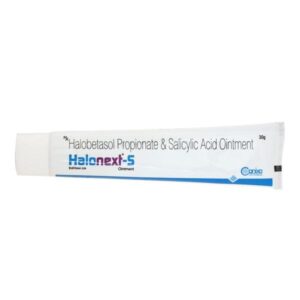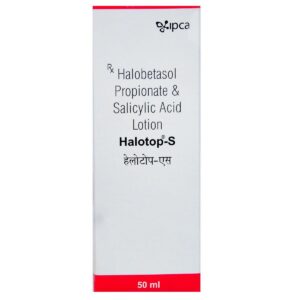SALICYLIC ACID + HALOBETASOL PROPIONATE
Salicylic Acid: Salicylic Acid is a common ingredient found in various skincare products and is primarily used to treat acne, psoriasis, and other skin conditions. It belongs to a class of medications called keratolytics, which work by exfoliating and shedding dead skin cells. Salicylic Acid also has anti-inflammatory and antimicrobial properties, making it effective in treating acne.
When applied topically, Salicylic Acid helps to unclog pores by dissolving the buildup of dead skin cells and excess oil. It can also reduce redness and inflammation associated with acne.
The recommended dose of Salicylic Acid will vary depending on the specific product and the condition being treated. It is essential to carefully follow the instructions provided by the manufacturer or as directed by a healthcare professional.
Common side effects of Salicylic Acid include skin irritation, dryness, redness, and peeling. These side effects are usually mild and temporary. However, if severe irritation or allergic reactions occur, it is important to discontinue use and seek medical attention.
Salicylic Acid should not be used on broken or irritated skin, as it can cause further damage or pain. It is also not recommended for use during pregnancy or while breastfeeding without consulting a healthcare professional.
It is important to note that Salicylic Acid should not be ingested, as it can cause serious adverse effects. It is for external use only, and contact with eyes, mouth, or other sensitive areas should be avoided.
As with any medication, it is advisable to consult a healthcare professional before starting Salicylic Acid treatment, especially if you have any pre-existing medical conditions or are taking other medications. They can provide personalized advice and guidance based on your specific situation.
Halobetasol Propionate: Halobetasol propionate is a high-potency corticosteroid medication used topically to treat various skin conditions. It is available as a cream, ointment, or gel under brand names such as Ultravate, Halog, and Halobetasol.
The drug works by reducing inflammation, itching, and redness associated with certain skin conditions. It does this by acting on the cells in the skin to suppress the immune response and inhibit the release of substances that cause inflammation.
Halobetasol propionate should only be used for a short duration, usually for two weeks or less, as it may cause skin thinning and other side effects if used for prolonged periods. It is commonly prescribed for conditions such as eczema, psoriasis, contact dermatitis, and other inflammatory skin diseases.
The typical recommended dose is a thin layer of the medication applied to the affected area once daily. It is important not to use more than the prescribed amount or use it for a longer period than instructed by the healthcare provider.
While Halobetasol propionate is generally safe and effective, it may cause some side effects. Common side effects include temporary burning, stinging, itching, dryness, or redness at the application site. It is possible that these side effects may worsen initially but should improve with continued use. Other less common side effects may include skin discoloration, folliculitis, acne, stretch marks, or allergic reactions.
It is important to follow the instructions provided by the healthcare provider and to avoid using this medication on open wounds, broken or infected skin, the face, underarms, or groin area unless specifically instructed to do so. Halobetasol propionate should not be used by pregnant or breastfeeding women without medical advice, as it can be absorbed into the bloodstream and potentially harm the baby.

